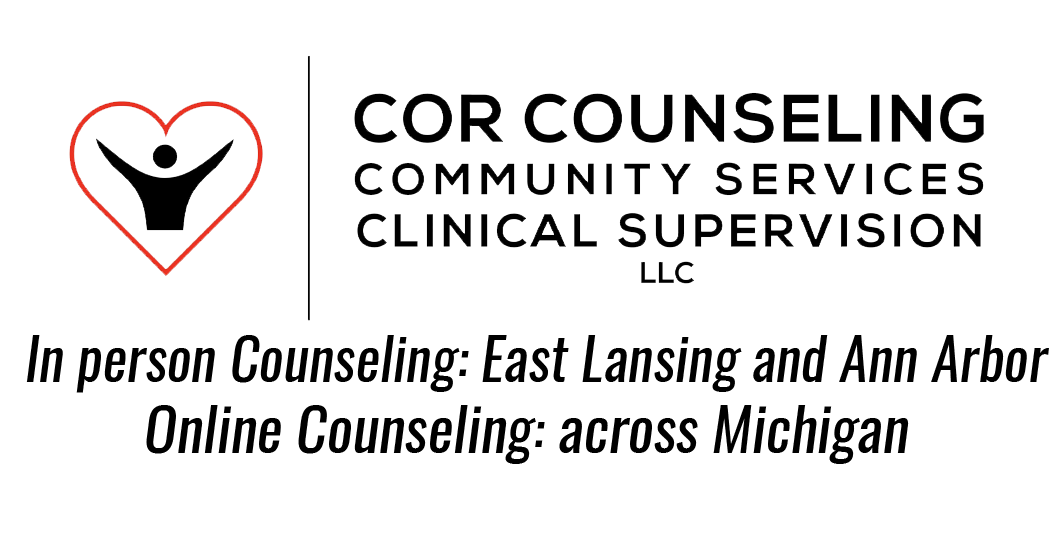EMDR or Eye Movement Desensitization Reprocessing, is a therapeutic treatment method. This method can be used in mental health treatment and it is recommended that the mental health professional be trained in EMDR before using it with clients.
When things happen in life that are hard, traumatic or distressing to us, our brain (much like life) continues to move forward. Often, when we are in distress, we also move, forward- but not always in the most healthy and adaptive ways.When bad things happen or when we experience trauma, we adapt- but not always in ways that serve our best interests.
Think about something bad that has happened in your life. It could be a significant loss or a failed relationship or an event or series of events that were traumatic or any number of distressing things that happen in life. When that bad thing happened in your life, what did you think? What message did you send to yourself? How did you feel? Many of us begin to send negative messages to ourselves, about ourselves when bad things happen.
When bad things happen, these messages that we tell ourselves about ourselves- are not good ones. Examples: I am worthless, I am unlovable, I am helpless, I am responsible for everything, I don’t belong, No one wants me, I am stupid, The world may be better without me, It was my fault, If I would have just done things differently- this would not have happened. These messages that we tell ourselves lead to negative core beliefs.
These negative core beliefs that we carry- IMPACT EVERYTHING in our lives.They prevent us from seeing clearly. They inhibit our ability to connect with others. They crush our confidence. They lead us to poor decisions and the consequences of those decisions- only confirm what we already knew (that our negative self-belief is true). We try our best to quiet this voice. We use substances and we eat through it and we get angry and we show signs of anxiety and depression and PTSD (and all the symptoms that come along with those things). WE BEAT OURSELVES UP, over and over and over.
What if there was a way to change these negative core beliefs? What if you could stop beating yourself up every day? What if your inner voice said: You are lovable, You are wanted, You have value, You are not responsible for everything, You cannot control what happens, You are smart, You are capable, You will succeed!
Wow- how refreshing would that be? How much of a relief would you feel?What might then be different in your life? Life would continue to move forward and you and your brain would continue to move forward- but in a much more positive and adaptive way.
EMDR has been proven to do just that. The goal is to change the negative core beliefs (or that negative voice in our head) to a message or belief that is much more positive. Seems simple, but it is hard and intense work. Changing a core belief can be a long and challenging process but it is worth the journey.
The EMDR process itself involves Eye Movement (EM), Desensitization (D) and Reprocessing (R). As you go through the process, you will be re-processing memories and as you think about the entire memory, you will notice how you feel and what you sense in your body and the thoughts related to the memory. As you re-process, the memory will become less and less disturbing (hence you will desensitize to the memory). The memory will still exist, but it will not be as disturbing when you think about it in the future. The goal of EMDR is to assist in making the memory less disturbing and to attach something positive (a positive message or inner voice) to the memory. Eye movements (moving eyes back and forth) or Bi Lateral Stimulation (tapping on both hands or knees) is used during EMDR to stimulate both sides of the brain.
EMDR is often used to treat PTSD and anyone that has experienced trauma.
EMDR has also been shown to be effective to treat the following:
Assisting in regulating emotions and managing stress
Depression
Psychotic Disorder
Attachment Disorders
Unexplained Somatic Symptoms
Phantom Limb Pain
Migraine Headaches
Generalized Anxiety Disorder
Panic Disorder
Pedophilia
Phobia
Conduct Disorder
Chronic Pain
Grief and Loss
Body Dysmorphic Disorder
Sexual Dysfunction

Contact COR Today
517-230-5695 | Fax: 855-978-1293 | intake@corcounselingmi.com